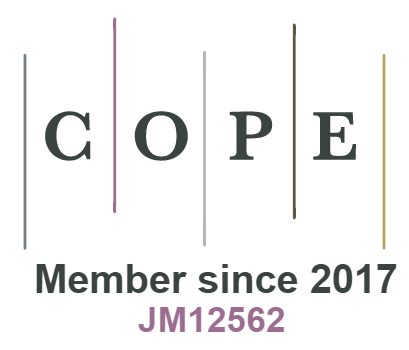Friendly URLs in the CMS and Power of Global Ranking with Crawlers with Added Security
DOI:
https://doi.org/10.18034/ei.v5i2.541Keywords:
Uniform Resource Locator (URL), Crawlers, Ranking, Search Engine Optimization (SEO), MetadataAbstract
The web space has the capacity for constant evolution in a dynamic world like ours; hence keeping up to date with the amounts of data that keeps trickling into its space per second requires an apt introspection of the fundamental tool designed for such task. The URL is saddled with the duty to safe keep most of the informational resources. So a functional and reliable one always gives users reasons to bookmark and return to it on a future date. This very writes up gave an in-depth definition of what a URL entails and the appropriate way of using it, which we argued should be: precise, comprehensive, explicit, impressionable, and long-lasting. The relevance of this fine internet tool was also explained in much detail, ranging from its ability to enhance user's experience, facilitate good ranking for the web owner, and ensure smooth linking, which others would give a favorable rating. Conclusively, the importance of a URL is that it enables the SEO and other websites linking to your site and your visitors to appreciate the fact that you care for their informational needs and have taken it upon yourself to provide a very dependable platform to provide solutions.
Downloads
References
Donepudi, P. (2017). AI and Machine Learning in Banking: A Systematic Literature Review. Asian Journal of Applied Science and Engineering, 6(3), 157-162. https://doi.org/10.5281/zenodo.4109672
Ganapathy, A. (2015). AI Fitness Checks, Maintenance and Monitoring on Systems Managing Content & Data: A Study on CMS World. Malaysian Journal of Medical and Biological Research, 2(2), 113-118. https://doi.org/10.18034/mjmbr.v2i2.553
Ganapathy, A. (2016). Speech Emotion Recognition Using Deep Learning Techniques. ABC Journal of Advanced Research, 5(2), 113-122. https://doi.org/10.18034/abcjar.v5i2.550
Narayana, S. L., Suneetha Devi J., Bhargav Reddy I., Harish Paruchuri. (2012). Optimizing Voice Recognition using Various Techniques. CiiT International Journal of Digital Signal Processing, 4(4), 135-141
Neogy, T. K., & Paruchuri, H. (2014). Machine Learning as a New Search Engine Interface: An Overview. Engineering International, 2(2), 103-112. https://doi.org/10.18034/ei.v2i2.539
Paruchuri, H. (2015). Application of Artificial Neural Network to ANPR: An Overview. ABC Journal of Advanced Research, 4(2), 143-152. https://doi.org/10.18034/abcjar.v4i2.549
Vadlamudi, S. (2015). Enabling Trustworthiness in Artificial Intelligence - A Detailed Discussion. Engineering International, 3(2), 105-114. https://doi.org/10.18034/ei.v3i2.519
Vadlamudi, S. (2016). What Impact does Internet of Things have on Project Management in Project based Firms?. Asian Business Review, 6(3), 179-186. https://doi.org/10.18034/abr.v6i3.520
--0--
Downloads
Published
Issue
Section
License
Engineering International is an Open Access journal. Authors who publish with this journal agree to the following terms:
- Authors retain copyright and grant the journal the right of first publication with the work simultaneously licensed under a CC BY-NC 4.0 International License that allows others to share the work with an acknowledgment of the work's authorship and initial publication in this journal.
- Authors are able to enter into separate, additional contractual arrangements for the non-exclusive distribution of the journal's published version of their work (e.g., post it to an institutional repository or publish it in a book), with an acknowledgment of its initial publication in this journal. We require authors to inform us of any instances of re-publication.









